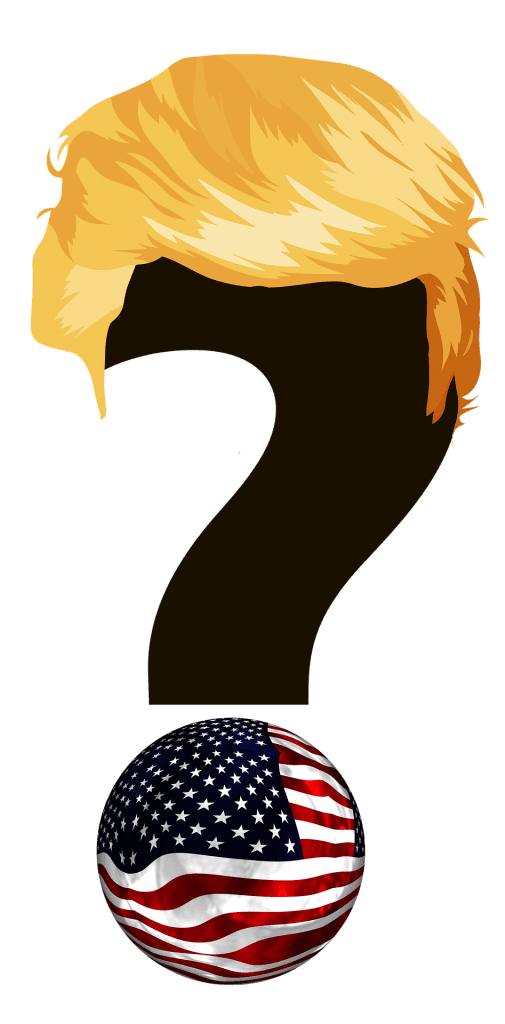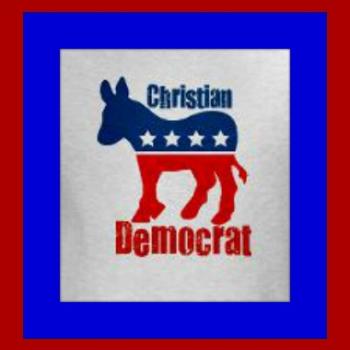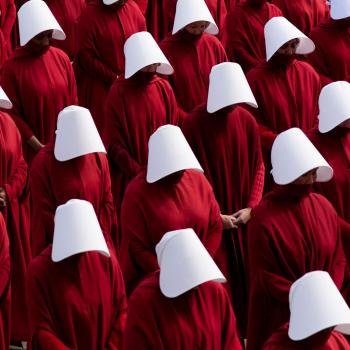
Welcome to Bizarro World. For more than a year now, millions of Americans have been walking around in disbelief. I’ve been struggling to put my thoughts on this into words for a while now. A quick perusal of my archives will reveal dozens of attempts to express my exasperation. Sometimes I fear I’m caught in a Groundhog Day scenario where I get up and write the same article day after day. I keep searching for a new way to say what I need to say in a way that satisfies. In the past 24 hours I have happened across a couple of bits of wisdom that have helped crystalize my thoughts enough to try, once again, to tackle the question that’s been eating away at me for months; how did we get here?
My own political journey has evolved a great deal over the last 18 months. My natural political inclinations make me more of a centrist than a liberal. I have some issues about which I am more conservative and others that align more with liberals. The net result is that I end up somewhere in the middle whenever I take one of those political surveys. Yesterday during my afternoon commute, I was listening to one of the comedy channels on Sirius Xm. A bit by Colin Quinn was playing and it spoke directly to my situation. You can watch the pertinent segment of that comedic bit here. To summarize, Quinn was lamenting the fact that we have reached a point in America where we are basically forced to take sides. The middle is no man’s land. There is no party–at least not a viable one–for people who are in the middle. When Quinn went on to describe his own stance on some hot-button issues, it felt as though he were describing me. He said he is “pro-gun, pro-choice, pro-gay marriage, and pro-death penalty.” He added the tag line, “what do all those things add up to? Anti-over-crowding.” That hilarious punch line was said in jest, but I could definitely relate to his point. I don’t think Colin Quinn and I are alone in finding ourselves in this frustrating position. In fact, I’d wager that a very significant percentage of Americans can relate. Consequently, when it comes time to vote for president, we are often faced with fairly unappealing options. We could vote for an independent, but that is tantamount to throwing a vote away. No third party candidate stands a realistic chance, let’s go ahead and face that fact right now. Another option is to abstain from voting–that doesn’t do any good, and far too many Americans choose that option. So, ultimately, we are faced with having to swallow hard and bite the bullet–to set aside our belief about some issues in favor of the greater good. Or…we double down on one issue and cast our vote based upon that and that alone. Therein lies a big part of the answer to the question of how we got to this point.
What I have just described has been the force that has been dividing Christians. Like it or not, religion has been taken hostage by politics. In recent years–and especially since the emergence of Donald Trump–there has been a big upwelling in a movement known as Progressive Christianity. This movement is, indeed, where I have been able to find some comfort in numbers, as I have learned that there are many others of like mind with me. I have written at length about my own journey to break free from the very prevalent notion that to be a Christian is to be a hard core Republican. The community of Christians who have begun to recognize that the message of Jesus Christ often seems quite at odds with the Republican party platform is growing in number and in voice, but it wasn’t enough to turn the tide in 2016. Most of the rural Red States that tipped the electoral votes to the favor of Trump are still filled with Christians who seem to either be oblivious to the contradictions or willingly turn a blind eye to them.
A friend of mine shared a meme on Facebook yesterday that also helped clarify my thoughts about how we got to this point. It was a quote by Martin Luther King.
“Shallow understanding from people of good will is more frustrating than absolute misunderstanding from people of ill will.”
-Martin Luther King Jr.
When I read that, I was taken immediately back to where I used to be–back when I was one of those Christians of good will who had too shallow an understanding of the issues–who either didn’t see, or overlooked the discrepancies between the words and deeds of Christ and the net effect of many of the policies I was supporting with my vote. I once felt compelled to view the world through the lens of conservatism because I thought that was a requirement of Christians–afterall, many of the messages I heard from the pulpits of churches had a subtle undercurrent that constantly reinforced that outlook. I didn’t use my vote out of ill will. That is why I still feel great empathy for my more conservative Christian friends. I know their hearts. I know they are good, loving people. They are simply bound–like I once was–by a very deeply embedded and, I believe, flawed connection between faith and politics.
The tie that continues to bind many conservative Christians to political conservatism is abortion. There is no getting around that fact. I don’t know how to fix that. I can tell them that I am reluctantly pro choice. I can tell them that being pro choice is a very different thing from being pro abortion. I can tell them I find abortions tragic and sad, but I have come to realize that the issues behind this controversy are very complex. I can tell them, for instance, that defunding Planned Parenthood might seem like striking a blow in favor of the rights of the unborn, but it could actually result in more abortions than ever since a big part of what Planned Parenthood does is helping to prevent unwanted pregnancies from occurring in the first place. I can tell them that, if a woman has reached the point where she is determined to terminate a pregnancy, I would much prefer it to be done in a safe place by a trained professional rather than some seedy alternative that could easily end her life, too. I can tell them all of that and, perhaps they might at least find empathy for me and how I came to believe as I do, but I fear it won’t change the fact that they will continue to cast their votes for the likes of a man like Donald Trump–a man who used to claim to be pro choice and, if the many stories are to be believed, could have been responsible for multiple pregnancies that ended in abortion–just because the “R” next to his name represents pro-life to them. That is a significant portion of the answer to the question of how we got to this point.
There are millions of voters who continue to vote with a shallow understanding of issues like immigration, health care, and tax reform, as well.
Immigration can and does provide great challenges for our nation. It is a fact that can’t be ignored. We have to be diligent in vetting people who want to enter our country. There are, no doubt, many who would like to do us harm. But not enough people understand how difficult it is for the millions of good people who must wait, sometimes for generations, to join their families and take advantage of the opportunities that await them here in the Land of the Free. I was completely ignorant of the complexity and depth of this problem until I saw Jose Antonio Vargas speak at the National Council of the Social Studies conference in Boston a few years ago. I hadn’t heard of Vargas before that day. As he told his story of being an “illegal alien”–Vargas would cringe at that term, he’d say humans aren’t illegal and prefers “undocumented”, but I think he’d forgive me here–who grew up in America not knowing he wasn’t here legally until he was in high school, my eyes were opened. You can read Vargas’ amazing story here. I went into that conference with a very shallow understanding of the immigration issue–I walked out with the understanding that it was so much more complex, that I really knew next to nothing about it. I now know enough about it to understand that there are far too many good Americans who have been here, in some cases for decades, as productive, hard working, tax paying people, who are now at great risk of being plucked away from their families and deported to places they spent half a life time thinking they’d escaped. Yet, many with shallow understandings stand on the sidelines and cheer as this happens.
Millions of people in those rural Red States–the people most responsible for putting Trump in the White House–had a very shallow understanding of the impact it would have on their health care. While Obamacare was admittedly not without some major flaws, it did provide health insurance coverage for many millions of people who previously didn’t have it. A great many of those people, because they’d been trained by their news providers to hate anything attached to Obama’s name–because they believed they were acting as “good Christians”–were actually casting a vote to strip themselves of their own health care. It didn’t take them long to realize that they had made a mistake that many of them are now regretting.
Far too many people have a shallow understanding of the new tax reform, too. They hear “tax cuts” and stop investigating. They fail to see that the vast majority of us might see tax cuts that yield returns of peanuts while the mega-wealthy will be laughing all the way to the bank. President Trump didn’t even try to conceal this ugly fact when he told some very wealthy friends that they “just got a lot richer.” There is a trend I have noticed on social media that really breaks my heart. Whenever I read the comments that follow story after story of the seemingly endless string of Trump scandals, I will inevitably see someone say, “well, how’s your 401k doing?” That reveals an alarmingy shallow understanding. Too many Americans seem to think that, as long as their finances are in reasonably good shape at the moment, everything else is insignificant. They fail to see beyond their own wallet. They fail to realize that, the moment any of these scandals becomes the straw the breaks the camel’s back, the moment that the Trump administration falls or, God forbid, triggers a catastrophic nuclear war, all those 401k accounts will tumble right along with the whole lot.
Those with good will and shallow understandings heard “Make America Great Again” and thought it sounded swell. They were sold a bill of goods. Those with ill will heard the slogan for what it was—a dog whistle into the darkness echoing off of the bigotry, hatred and fear that mark the worst aspects of our history.
So, I have slowly come to a better understanding of how we got here.
I only wish that made me feel better…











